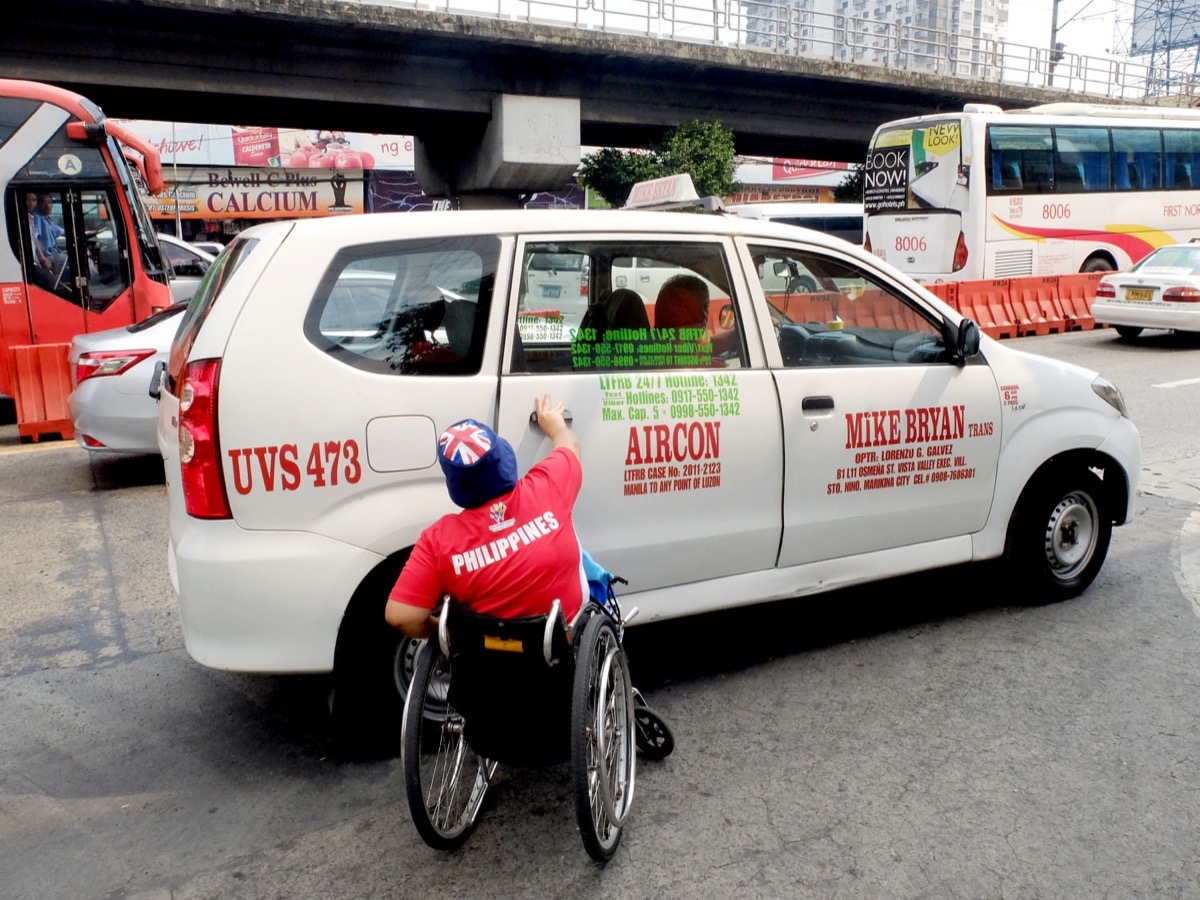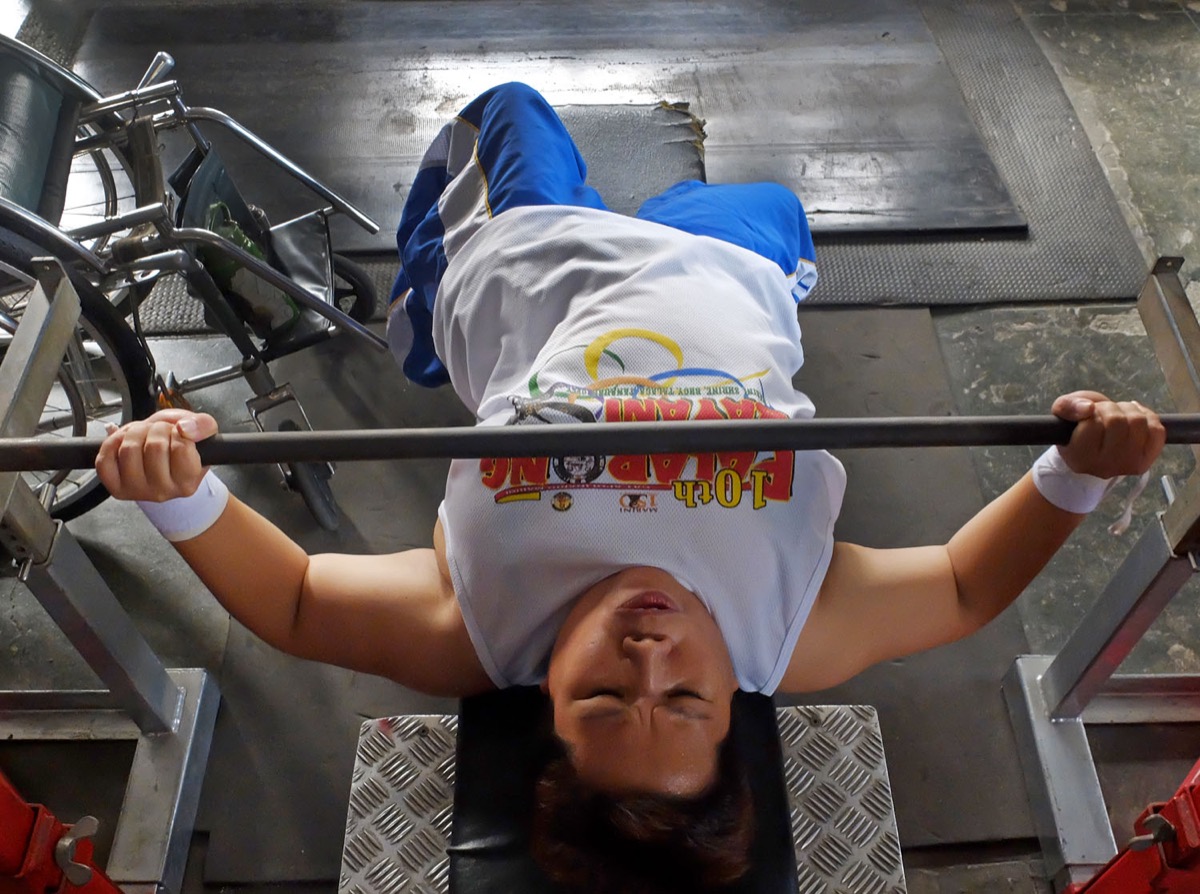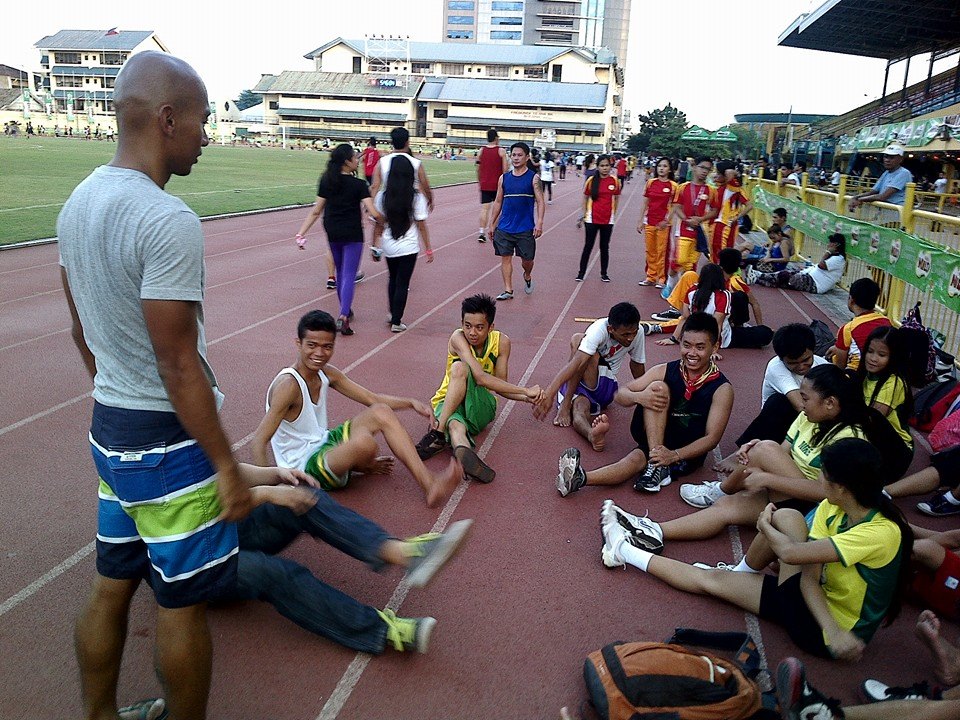[metaslider id=33881]
Text and photos by ALANAH TORRALBA
ON Saturdays, Achelle “Jinky” Guion must negotiate her way through EDSA. A wheelchair user, she must pull her wheelchair to the sidewalk of the national highway and pray that a passing vehicle will not hit her. Then she must plead with a taxi driver to take her from a gym in Cubao, Quezon City to her home in Cainta, Rizal. Often, taxi drivers would refuse.
Guion has brought home awards for the country as a power lifter of the national PWD (persons with disabilities) team. She has competed in numerous local and international competitions and was part of the country’s largest delegation of PWD athletes at the Paralympic Games in 2012. (See PWD athletes largest Ph delegation to London Paralympics)
Despite a new law meant to encourage PWD athletes to excel in sports, many PWD athletes still encounter persistent problems from accessibility of transport to financial woes and lack of institutional support.
In November 2015, President Benigno Aquino signed into law Republic Act 10699, expanding the coverage and incentives for national athletes and coaches. The law, which now also covers PWD athletes, repeals the legislation passed in 2001.
The law, among others, provides for discounts in certain establishments for national athletes, priority in affordable housing loans, comprehensive social security and the use of living quarters and training centers maintained by the Philippine Sports Commission while preparing for international competitions.
Once a week, Guion goes to a gym in Cubao to train for the 2016 Paralympic Games in Rio de Janeiro in Brazil with her coach. She admits she has not been getting proper training as frequently as she should and makes do with what is available.
The veteran power lifter has yet to enjoy the benefits RA 10699 promises as she struggles to train regularly.
Guion, like many athletes, is not familiar with the law. She is aware that some incentives are given to athletes who win in international competitions but is surprised at the magnitude of the financial rewards.
A PWD athlete who wins a gold medal at the Youth Olympic Games or Paralympic Games will be given P5 million while a silver medalist will be given P2.5 million. A bronze medalist gets P1 million.
At the Asia Para Games and world-level competitions, a gold medalist will be given P500,000. Subsequent medalists will get half of that amount and so on.
Guion says it is difficult for her to train even in gyms near her home. Most local gyms in Cainta are not wheelchair accessible. “I will have to crawl up to the second floor of a gym. I will have no more energy left to train,” she adds.
Even the gym at the PhilSports Arena in Pasig, where most national athletes train, is located on a higher floor, Guion says.
The powerlifting team’s fate in the Paralympic Games, despite having already technically qualified in terms of points, is still up in the air. Due to a sudden change in rules by the International Paralympic Committee (IPC) that requires attendance in international meets, the team must compete at the 2016 IPC World Cup in Kuala Lumpur on February 24-28. The team will then ask for a wild card slot at the IPC, which still does not guarantee their participation.
Aside from the change in rules, Ramon Debuque, the power-lifting team’s coach, says the persistent problem of lack of funding still hounds the national athlete’s pursuit of medals.
It is difficult, for example, for a PWD athlete like Guion to be able to train regularly as she cannot afford to commute daily to Cubao, where Debuque’s gym is located.
Debuque also laments how athletes cannot follow diets geared towards maximizing their performance, which tend to be more expensive than what is widely available. Supplements, such as whey protein that aid in muscle development, are also too expensive for the athletes to purchase themselves.
The athletes must wait for the release of their allowances, which are typically given close to the dates of international competitions. In the meantime, athletes are forced to subsist on their meager wages or contributions from private citizens. Many of them cannot afford to become full-time athletes, an ideal situation that would allow them to focus on their rigid and exhausting training programs.

Debuque says it is difficult to aim for a gold medal with his team, given the limited time they are able to devote to training.
In 2012, the Philippine delegation to the Paralympic Games in London failed to bring home any medals in any of their events. Adeline Dumapong-Ancheta, another veteran power lifter, finished sixth in her event. (See No medals for Ph Paralympians)
Despite the setbacks, Guion is still excited for the Paralympic Games in September. She says that the sport has taken her to different parts of the globe that she had never imagined she could visit. Her siblings, she says, are amazed that she has been able to travel extensively.
“I also do this for my friends at the Tahanan ng Walang Hagdanan. I want to encourage them to play sports because it can be empowering,” she says.

